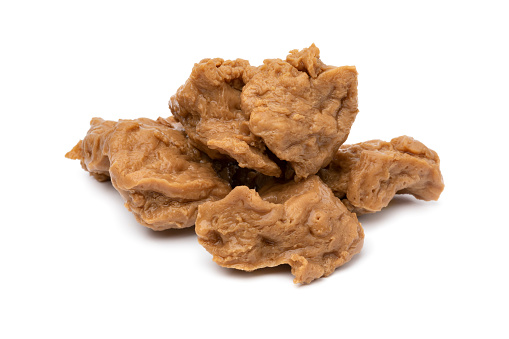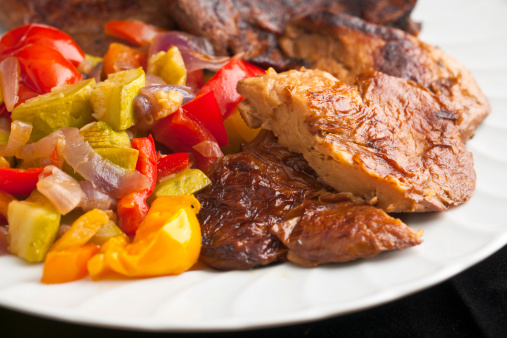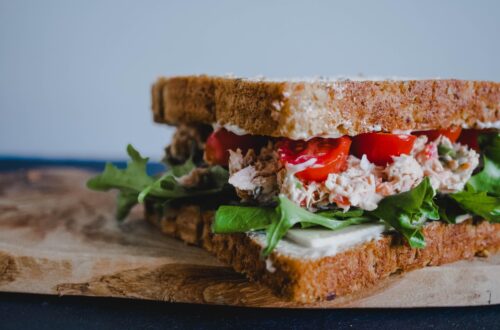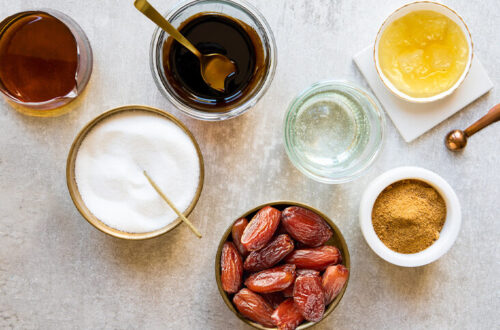Find out if seitan is really healthy…
Seitan, otherwise known as vital wheat gluten, is a popular non-animal protein substitute for vegans. Seitan is made out of hydrated gluten by kneading moistened wheat flour to develop sticky strands of gluten protein. The dough is then rinsed to wash away all of the starch. The remaining sticky mass can then be seasoned, cooked and used as a meat substitute. You may also find it pre-made at your local grocer where it is already seasoned, cooked and ready to use as a meat substitute.
Seitan may be used in a variety of ways. The texture of seitan is very dense which makes it very versatile. It can be baked, grilled, simmered in stew, stir-fried or breaded and deep-fried. The flavor is neutral so it can take on the flavor of whatever sauce or seasoning is added to it.

Regarding health benefits, seitan is highly processed so it should be consumed in moderation. Some studies have found that eating gluten can increase intestinal permeability. However, this has not been consistent across all studies so further research is needed.
On the upside seitan is quite nutritious. It’s low in carbs and fat having only 4 grams of carbs and 0.5 grams of fat in each serving. Furthermore, in addition to having only 104 calories, one serving of seitan contains:
- Selenium: 36% of the RDI
- Iron: 20% of the RDI
- Phosphorus: 19% of the RDI
- Calcium: 4% of the RDI
- Copper: 3% of the RDI
Seitan is also a good source of protein as it is the main protein in wheat. There are 26 grams of protein in a 4-ounce serving of seitan. However, it is not a complete protein as it lacks the amino acid lysine. Many vegans supplement this by eating lysine rich foods such as tempeh, tofu and legumes.
Overall, seitan is perfect for people who wish to eliminate meat because they have high cholesterol or other health problems. For vegans with soy allergies its a good alternative to soy-based meat substitutes. Meanwhile, as it a product of wheat flour it is not an option for those with gluten allergies. Though if you have weight loss goals seitan may be the answer. It’s the naturally low-fat protein source that tastes great while increasing the likelihood of weight loss.
Do you think that seitan is really healthy? What are the pros and cons?





